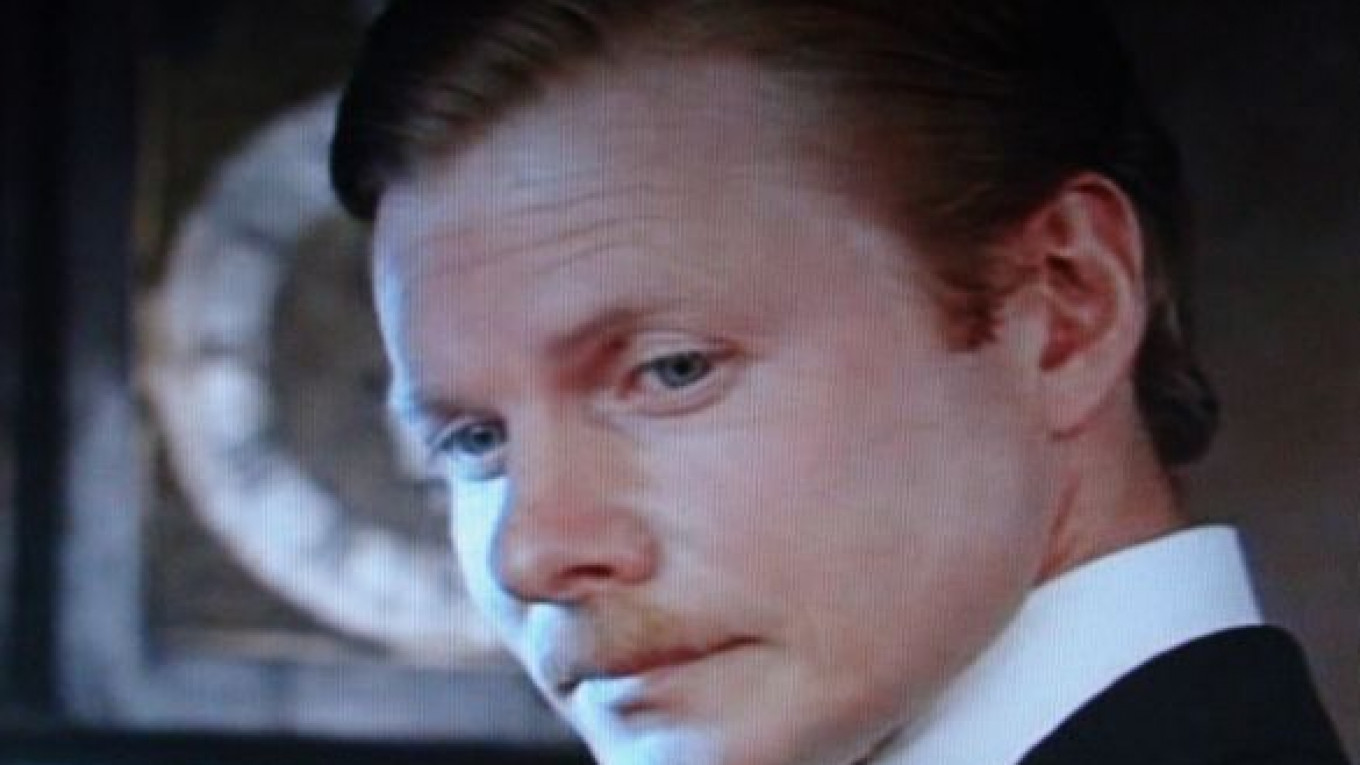- “Chapayev” (1934), a civil war drama viewed by 30 million in its first year of release in the Soviet Union.
- “Cinderella” (1947), a classic rendition of the fairy tale. Faina Ranevskaya stars as the evil stepmother along with many other Soviet greats.
- “The Lady with the Dog” (1960), an adaptation of Anton Chekhov’s short story. Won acclaim at the Cannes Film Festival.
- “Amphibian Man,” (1961). What happens when you are given the gills of a shark instead of lungs in an operation as a child? Yes, you become Amphibian Man, as seen in this rare Soviet superhero film.
- “Hamlet” (1964), Shakespeare’s tragedy with the legendary Innokenty Smoktunovsky in the starring role.
- “The Chief of Chukotka” (1966), a comedy about the most famous head of Chukotka before Roman Abramovich.
- “Twenty Days without War” (1976), an anti-war epic directed by Alexei German and starring Yury Nikulin and Lyudmila Gurchenko. Initially banned from release.
- “Blue Bird” (1976), a joint U.S./Soviet fantasy film directed by George Cukor and starring Elizabeth Taylor and Jane Fonda. Taylor caught dysentery while filming in Leningrad.
- “Sherlock Holmes and Doctor Watson” (1979), a much-loved Soviet version of Arthur Conan Doyle’s all-knowing detective.
- “Peculiarities of the National Hunt” (1995), one of the few funny Russian films from 1990s.
Source:
ST. PETERSBURG — Lenfilm, one of Russia’s oldest and most venerable motion-picture studios, looks set to pack its bags and leave its central location as it faces being absorbed at a bargain price by Sistema Financial Corporation, the country’s largest diversified consumer services company, headed by tycoon Vladimir Yevtushenkov.
Lenfilm, whose history dates to 1918, produces only about three to four movies per year and is struggling to stay afloat.
The Culture Ministry asked the Finance Ministry for a subsidy to remedy Lenfilm’s financial plight, but the request was turned down.
The solution currently being floated is to create a partnership between the state and Sistema under which Lenfilm would merge with a private studio owned by Yevtushenkov. The scheme would see Lenfilm moving to new pavilions on the outskirts of St. Petersburg, and Yevtushenkov using the prime location on the Petrograd side of St. Petersburg for lucrative construction projects.
Famous St. Petersburg filmmakers Alexander Sokurov and Alexei German sent an open letter last week to Prime Minister Vladimir Putin, who is also head of the state film council, “to save Lenfilm” from being absorbed by the Sistema Mass-Media holding — the company that unites the media projects of Sistema Financial Corporation.
“We have obtained a copy of a document numbered 130607/3290 from the Finance Ministry in which the value of Lenfilm is estimated at a laughable 105 million rubles [$3.7 million],” Sokurov said to reporters. “We also received a copy of the new list of Lenfilm’s board of directors, in which there are no representatives of the studio.”
Sistema is “researching forms of public-private partnership that would allow one of Russia’s finest studios, which is in a state of financial decay, to revive.” said company spokesperson Yulia Belous.
Lenfilm’s assets have not yet been evaluated and the studio had not been included in privatization plans for the year 2011, said Andrei Komarov, an official spokesman for the Federal Agency for State Property Management.
Film director Alexei Uchitel is convinced that Lenfilm in its current condition is in a precarious state.
“Preserving the venerable film studio in its current state and doing nothing essentially means leaving Lenfilm to die,” Uchitel told reporters at a news conference Monday. “It is a positive sign indeed that there are people in Russia who are ready to invest in the development of Lenfilm; however, as we all know, it is treacherous ground.”
A number of filmmakers, industry experts and film critics in Russia share Uchitel’s concern and say that if Lenfilm becomes a commercial enterprise, there will be no place for art-house films of the kind that Sokurov and German have been making.
Uchitel said that Lenfilm should follow the example of Mosfilm which has recovered from an equally precarious economic position and still makes art-house films.
About 1,500 films have been made at Lenfilm since its birth as a film committee in 1918 — it received its current name in 1934 — and some of the country’s finest cinematographic talent such as actor Oleg Yankovsky and filmmaker Grigory Kozintsev worked at Lenfilm.
A Message from The Moscow Times:
Dear readers,
We are facing unprecedented challenges. Russia's Prosecutor General's Office has designated The Moscow Times as an "undesirable" organization, criminalizing our work and putting our staff at risk of prosecution. This follows our earlier unjust labeling as a "foreign agent."
These actions are direct attempts to silence independent journalism in Russia. The authorities claim our work "discredits the decisions of the Russian leadership." We see things differently: we strive to provide accurate, unbiased reporting on Russia.
We, the journalists of The Moscow Times, refuse to be silenced. But to continue our work, we need your help.
Your support, no matter how small, makes a world of difference. If you can, please support us monthly starting from just $2. It's quick to set up, and every contribution makes a significant impact.
By supporting The Moscow Times, you're defending open, independent journalism in the face of repression. Thank you for standing with us.
Remind me later.






